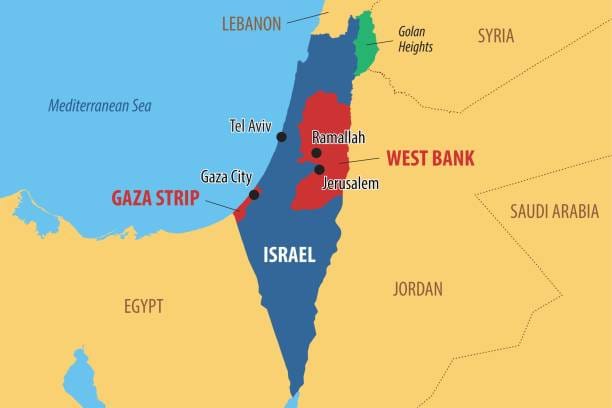Palestine and ISLAM
Palestine and Islam: History, Significance, and Key Events Explained
Palestine is one of the most historically and spiritually significant regions in the world. Known as the land of prophets, it holds a special place in the hearts of Muslims due to its deep connection with Islamic history, sacred sites, and Quranic references.
In this blog, we explore the history of Palestine, its importance in Islam, and the major historical events that shaped this land from ancient times to the modern era.

Palestine: A Land of Ancient Civilizations
Located at the crossroads of Asia, Africa, and Europe, Palestine has been home to countless civilizations over thousands of years.
- Early Names: Historically known as Canaan after the Canaanites (c. 3000 BCE) and later as Philistia from the Philistines (c. 1200 BCE), the name evolved into “Palestine” over time.
- Religious Crossroads: Judaism, Christianity, and Islam all consider Palestine sacred, with Jerusalem (Al-Quds) at the center of religious devotion.
This strategic location made it a melting pot of culture, faith, and history.
Palestine in Islam: Religious Significance

Palestine holds immense importance in Islam for several reasons:
- Al-Aqsa Mosque (Masjid al-Aqsa):
The third holiest mosque in Islam, after Mecca and Medina, is located in Jerusalem. - First Qibla:
Before turning towards the Kaaba in Mecca, early Muslims prayed facing Jerusalem. - Isra and Mi’raj (Night Journey):
The Qur’an (Surah Al-Isra 17:1) mentions Prophet Muhammad’s ﷺ miraculous night journey from Mecca to Al-Aqsa and his ascension to the heavens. - Land of Prophets:
Palestine is home to many prophets, including Ibrahim (Abraham), Dawood (David), Sulaiman (Solomon), Musa (Moses), and Isa (Jesus), peace be upon them all.
Islamic Conquest of Palestine
The spread of Islam brought Palestine under Muslim rule:
- 636 CE – Battle of Yarmouk: Muslim forces defeated the Byzantine Empire.
- 637 CE – Caliph Umar ibn al-Khattab’s Entry: Jerusalem was handed over peacefully under the Umariyya Covenant, ensuring safety for Christians and Jews.
- 691 CE – Dome of the Rock Built: Caliph Abd al-Malik constructed this stunning landmark, still admired today.
Under the Umayyads, Abbasids, and later the Ottomans, Jerusalem flourished with mosques, schools, and trade centers.
Crusades and Muslim Resistance
- 1099 CE – Crusader Invasion: European Crusaders captured Jerusalem, turning Al-Aqsa Mosque into a Christian church.
- 1187 CE – Salahuddin Ayyubi: The great Muslim leader defeated the Crusaders at the Battle of Hattin and retook Jerusalem, allowing peaceful coexistence for Christians and Jews.
Ottoman Era and British Mandate
- 1517–1917: Under Ottoman rule, Jerusalem became an important administrative and religious center. Sultan Suleiman rebuilt the Old City walls in 1538, which still stand today.
- 1917 – Balfour Declaration: Britain supported a Jewish homeland in Palestine, triggering tensions that would lead to modern conflicts.
Modern Era: The Palestinian Struggle
- 1948 – Nakba (“Catastrophe”): Creation of Israel displaced over 750,000 Palestinians from their homes.
- 1967 – Six-Day War: Israel captured East Jerusalem, West Bank, and Gaza.
- Intifadas: Palestinian uprisings in 1987 and 2000 highlighted resistance against occupation.
Today, Palestine remains a symbol of faith, resilience, and unity for Muslims worldwide.
Timeline of Key Events in Palestine’s Islamic History
| Year | Event | Importance |
|---|---|---|
| 636 CE | Battle of Yarmouk | Islamic control begins |
| 637 CE | Umar enters Jerusalem | Peaceful transition, protection for all faiths |
| 691 CE | Dome of the Rock built | Iconic Islamic architecture |
| 1099 CE | Crusaders capture Jerusalem | Christian control, mass killings |
| 1187 CE | Salahuddin retakes Jerusalem | Muslim rule restored peacefully |
| 1517 CE | Ottoman rule begins | Long stability and development |
| 1917 CE | Balfour Declaration | Modern political conflict begins |
| 1948 CE | Nakba and Israel’s creation | Mass displacement of Palestinians |
| 1967 CE | Six-Day War | Israeli occupation of East Jerusalem |
| 1987 & 2000 | First & Second Intifadas | Palestinian uprisings against occupation |
Palestine’s Legacy in Islam
Palestine is not just a geographical land; it is a spiritual heart for Muslims around the globe. With its prophetic legacy, holy sites, and centuries of Islamic history, Palestine continues to symbolize faith, courage, and resistance.
For Muslims, visiting Al-Aqsa Mosque and supporting the Palestinian cause holds deep spiritual and moral significance.



